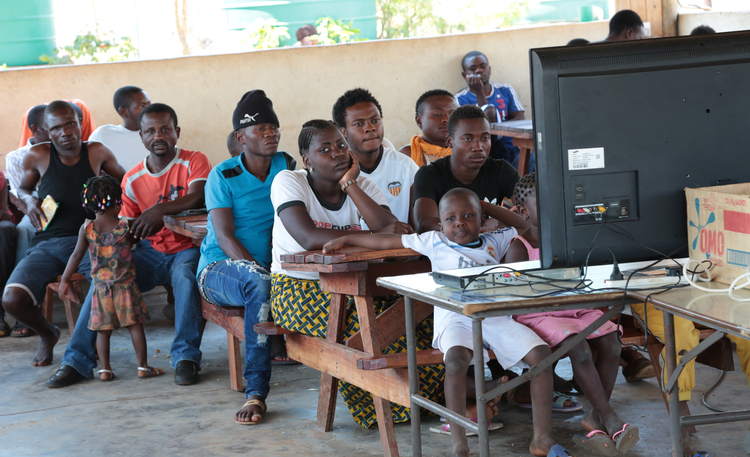
The Sunday Mail

Edwin Mwase – Extra Reporter
A stroll in the one-street growth point of Nyamapanda will quickly reveal that this is a “rainbow settlement”, with people from different ethnic and cultural backgrounds mixing and mingling largely harmoniously.
 This is not surprising for a border settlement, which deals with more than its fair share of traders and itinerants.
This is not surprising for a border settlement, which deals with more than its fair share of traders and itinerants.
Nyamapanda has its permanent residents, refugees and wayfarers.
A good number of refugees here are Congolese, especially from the eastern DRC where remnant M23 rebels and Mai-Mai militias play god.
Authorities from the International Organisation for Migration-Zimbabwe peg the average number of new refugee and asylum-seeking arrivals at three per day.
And now the generally hospitable people of Nyamapanda fear some may bring Ebola along with them.
News of the recent discovery of a new strain of the virus in eastern DRC, where Ebola could conceivably become endemic, has not helped the situation.
The settlement is home to the Nyamapanda Temporary Reception Centre, one of the biggest refugee in-transit receiving points in the country and run by IOM-Zimbabwe.
Most people here say neighbouring countries shun them and exhibit hostile tendencies, which is the chief reason why they prefer coming to Zimbabwe.
As such, Nyamapanda has become an integral component insofar as assistance to refugees and asylum seekers is concerned in Southern Africa.
With the whole world on high alert following the outbreak of Ebola in West and Central Africa, residents feel more needs to be done to balance altruism and public health.
“Since the area becomes a melting pot of divergent cultures, we are worried that unchecked arrivals might actually fuel the spread of the Ebola virus and also other viruses,” says Emmanuel Makadho, a resident.
Makadho says the world’s oldest profession thrives here, and that makes Nyamapanda a cause for national concern.
A story doing the rounds is that an extra fee, known as the “Ebola risk allowance”, has since been introduced by ladies of the night plying their trade here. The fears are not unrelated to the fact that the local health facilities are already ill-equipped. The nearest major facility, Kotwa District Hospital, is 20km from the Nyamapanda Growth Point. Residents argue that more should been done by authorities in the form of resource mobilisation in the event of the virus detection.
“Should disaster strike, I honestly think the country will struggle to deal with the crisis to stop it from spreading into inland Zimbabwe,” says Mr Mike Mhaka.
IOM-Zimbabwe told The Sunday Mail Extra that most immigrants they receive are from the DRC, Ethiopia, Rwanda and Burundi. Somalis are also known to arrive. Field operations assistant with IOM Mr Chamunorwa Mataranyika says the organisation is complementing Government efforts via the Ministry of Health and Child Care on the issues to do with the Ebola virus.“We have developed a local standard operating procedure which entails daily visits by port health officials administrating a migrant questionnaire, compiling of the questionnaires and handing them over to the district medical officer for onward transmission to the provincial medical director,” he explains.
Mr Mataranyika says they have also opened a separation room at the NTRC, and quarantine rooms at Nyamapanda Clinic and Kotwa District Hospital.
“In the event that there are suspected cases of Ebola, the district hospital will immediately dispatch an ambulance to take such people from the NTRC separation room to the hospital.
“The district hospital distributed preventive and protective equipment to the port health at the border and Nyamapanda Clinic.”
The facility at the border, he says, acts as a screening area and information gathered there feeds into a national database.
He says medical staff at the centre work hand-in-glove with personnel from the Health Ministry in Nyamapanda, and also those at the district hospital in Kotwa; alerting local institutions and authorities of any possible threats.
Thankfully, no cases of Ebola had been detected in Zimbabwe at the time of writing.



